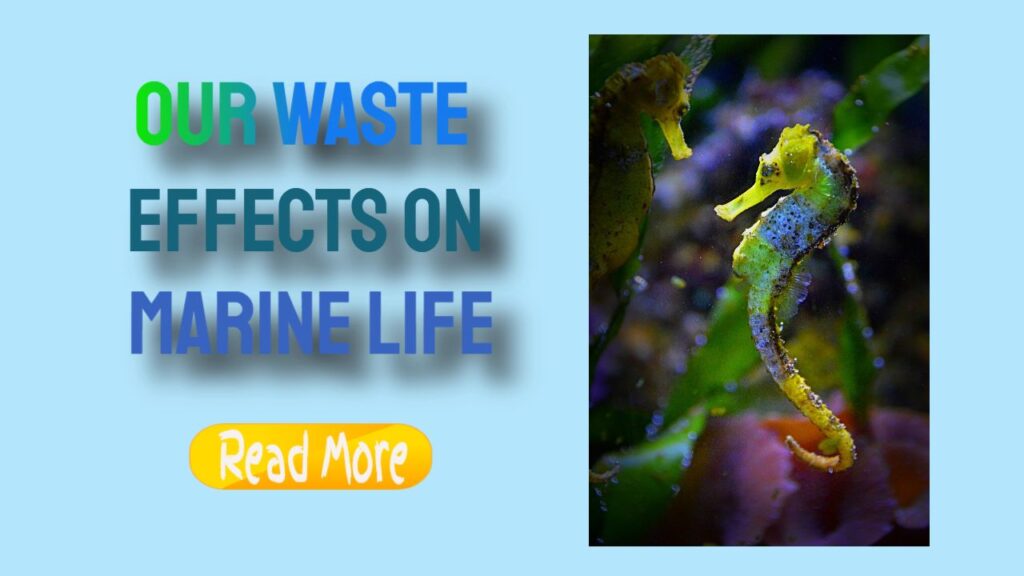Discover Critical Insights on Marine Pollution and Oil Spills
- Comprehensively Understanding Environmental Impacts of Oil Spills
- Thoroughly Assessing the Toxicity of Oil Spills on Human Health
- In-Depth Exploration of Ocean and Coastal Acidification Effects on Ecosystems
- Identifying the Most Critical Threats to Marine Environments
- Evaluating the Widespread Societal Impacts of Oil Spills
- Analyzing the Long-Term Economic Consequences of Oil Spills
- Recognizing the Major Effects of Oil Spills on Marine Ecosystems
- Thoroughly Examining the Impact of Oil Spills on Marine Animals
Comprehensively Understanding Environmental Impacts of Oil Spills
The challenge of marine pollution encompasses a variety of factors, including chemical, industrial, and agricultural contaminants, which have surged in frequency in recent years. This issue has notably surfaced through numerous incidents, such as devastating oil spills, untreated sewage discharges, and the alarming introduction of invasive species. Consequently, there is an escalating concern among scientists and environmental advocates regarding the adverse effects of these pollutants, which threaten not only our delicate ecosystems but also human health. Continuous monitoring initiatives have been implemented to quantify the levels of chemical and plastic pollution in our oceans, employing diverse methodologies to trace pollutant discharges from land-based activities, including oil spills. Programs like Horizon 2020 strive to enhance the health of the Mediterranean by identifying pollution sources and advocating for sustainable marine conservation practices.
Research on marine pollution primarily centers on its impacts on biodiversity, the risks posed to human health, and the overall quality of marine experiences. This detailed analysis seeks to explore the intricate interplay between these categories, emphasizing their critical importance. While some seabird populations endure negative consequences from oil exposure, it is noteworthy that the overall stocks of marine species have not demonstrated significant declines attributed to pollution. Factors such as reproductive success and population dynamics are often more profoundly influenced by external conditions. Remarkably, regions like the North Sea, which have experienced increased pollution levels, have reported growth in fish populations, notably cod and haddock, over the decades.
Deep-sea mining activities further exacerbate the issue of marine pollution, with operations extracting valuable minerals like silver, gold, and copper. These mining practices produce sulphide deposits at considerable depths, potentially releasing harmful substances that can heighten ocean toxicity. While scientific research continues to probe the environmental ramifications of deep-sea mining, it is evident that these operations pose significant risks to marine ecosystems, causing irreversible damage and escalating the likelihood of oil spills and contamination.
Thoroughly Assessing the Toxicity of Oil Spills on Human Health
While oil spills significantly contribute to marine pollution, they are far from being the sole offenders. Other critical sources of ocean pollution include the discharges and runoff from urban and agricultural landscapes. Each year, millions of pounds of untreated waste, including sewage and toxic materials, flow into rivers, ultimately reaching the ocean. The problem is compounded by industrial processes and agricultural runoff that introduce hazardous chemicals and pollutants into our waterways. The cumulative effects of these pollutants present severe risks not only to marine ecosystems but also to human health, highlighting the urgent need for comprehensive evaluation and intervention.
Ship-based pollution remains a major contributor to maritime contamination, particularly due to oil spills. Crude oil, notorious for its persistence in ocean waters, is highly toxic to marine organisms, often leading to suffocation when they become trapped in oil. The clean-up of oil spills presents substantial challenges, complicating the recovery of the affected marine environments. The extent of damage inflicted by oil on coastal ecosystems is influenced by various factors, including the type of oil involved, its viscosity, and the effectiveness of clean-up measures. For instance, lighter oils may impact marsh vegetation differently than heavier crude oils, each type presenting distinct challenges for recovery efforts. Researchers continue to investigate the ecotoxicology of marine pollutants to deepen our understanding of their implications for human and environmental health.
Ultimate Secrets To Saltwater Fish And Invertebrates
In-Depth Exploration of Ocean and Coastal Acidification Effects on Ecosystems
Consider the vast diversity of life that thrives within our oceans. The implications of increased acidity in marine environments can dramatically alter the dynamics of various plant and animal species, often in unpredictable ways. While certain organisms, such as seagrasses, may flourish with heightened levels of dissolved carbon dioxide, others, like oysters, may face dire challenges as their larvae struggle to survive in more acidic conditions. Consequently, ocean and coastal acidification is likely to prompt shifts within entire ecosystems, critically affecting species abundance and interactions.
Approximately 80% of marine pollution is believed to have land-based origins, primarily driven by the pressures of escalating coastal populations. Nutrient pollution, chiefly from agricultural runoff and sewage, inundates marine environments with excessive nitrogen and phosphorus, leading to hazardous algal blooms. The decay of these blooms depletes oxygen levels, creating hypoxic zones where marine life cannot endure. As the ocean, covering 71% of our planet, continues to absorb greenhouse gases and experiences rising temperatures, significant disruptions to the delicate balance of marine and coastal ecosystems occur. Additionally, melting ice caps and altered ocean currents further exacerbate these ongoing environmental changes.
Plastic pollution has emerged as a crucial concern in coastal and marine ecosystems globally. The relentless influx of plastic waste disrupts the structural and functional integrity of these ecosystems, posing both direct and indirect threats to marine life. Sources of plastic pollution are diverse, stemming from both land-based and ocean-based activities, manifesting in various forms such as metaplastic, macroplastics, mesoplastics, and microplastics. Understanding the ramifications of plastic pollution is essential for developing effective strategies to mitigate its impacts on marine environments.
Identifying the Most Critical Threats to Marine Environments
Antimicrobial resistance (AMR) has likely been an intrinsic part of marine microbial communities for millennia; however, its prevalence has surged dramatically in recent years, particularly in coastal waters. This increase is thought to correlate with the growing influx of pollutants and pathogens from land-based sources into marine environments. The effects of plastic litter on marine ecosystems have been extensively documented, illustrating that numerous marine species face threats from plastic waste, jeopardizing their survival, especially since many species are already vulnerable due to other anthropogenic pressures.
Marine animals frequently suffer from entanglement and ingestion of plastic debris, leading to severe health complications and population declines. Lesser-recognized threats include the indirect consequences of plastic waste on invasive species and the potential for harmful chemicals, such as polychlorinated biphenyls, to permeate the food chain. The socio-economic impacts of marine litter are complex and interconnected, posing significant challenges for management and mitigation strategies. Research on ghost fishing, for instance, reveals the economic losses associated with lost fishing gear, underscoring the broader implications of marine pollution on livelihoods and coastal economies.
Evaluating the Widespread Societal Impacts of Oil Spills
The escalating pollution levels in our oceans, driven by human activities, threaten the sustainability of marine ecosystems, leading to far-reaching societal consequences. Advanced monitoring technologies, including airborne and spaceborne sensors, are being leveraged to provide comprehensive insights into principal marine pollutants, such as oil spills, chemical discharges, and algal blooms. However, the complexities of evaluating these pollutants arise from their dynamic nature and the limitations of existing data regarding their specific characteristics and impacts, particularly in optically shallow waters.
Noteworthy oil spill incidents, such as the Exxon Valdez and Deepwater Horizon disasters, have left indelible marks on marine environments and surrounding communities. The Torrey Canyon spill in 1967 is recognized as one of the first major oil disasters, releasing an estimated 25-36 million gallons of crude oil off the coast of Cornwall, England, and severely affecting coastlines in both the UK and France. The Deepwater Horizon spill, originating from the seabed, had devastating impacts on the Gulf Coast's ecosystem, affecting marine life at every level. In marine oil spills, fish and other marine organisms are often the first casualties, facing exposure to toxic oil components that can result in long-term health issues and reproductive challenges.
Analyzing the Long-Term Economic Consequences of Oil Spills
Estuaries, often situated near petrochemical industries, are particularly vulnerable to oil exposure due to transport activities via ships and pipelines. Oil spills can inflict severe damage on vital intertidal habitats, including salt marshes and mangroves, leading to enduring ecological repercussions. The entanglement of marine animals in debris, along with their accidental ingestion of harmful materials, further exacerbates the risks posed by oil spills, impacting species such as seabirds, turtles, and marine mammals.
Oil plays a pivotal role in the modern economy, serving as both a cost-effective energy source and a fundamental raw material for plastics. The impacts of oil and gas exploration and production are multifaceted, affecting ecosystems at every stage, from exploration to extraction and eventual combustion. In the North Sea, it is estimated that offshore activities contribute to 29% of the total oil input into marine environments, underscoring the ongoing risks associated with oil production and its long-term effects on both marine life and economic stability.
Recognizing the Major Effects of Oil Spills on Marine Ecosystems
Despite the advancements in environmental regulations, oil spills continue to pose a significant threat to marine ecosystems. While most oil spills are relatively small in scale, collectively they contribute to a substantial amount of oil entering marine environments, with over 5.65 million tonnes released due to tanker spills from 1970 to 2009. The environmental hazards linked to offshore oil production are profound, as massive spills can wreak havoc on marine wildlife and coastal communities.
The Deepwater Horizon blowout in 2010 serves as a stark reminder of the potential devastation caused by offshore drilling accidents. While natural disturbances often allow ecosystems to rebound, oil spills introduce persistent contaminants that can disrupt marine life for generations. Larger marine mammals and seabirds are particularly susceptible to the immediate and long-term health effects of oil exposure, which can induce physiological changes, compromise immune systems, and result in reproductive failures.
Many coastal and marine ecosystems are adapted to withstand natural disturbances, creating opportunities for new organisms to thrive. However, oil spills introduce a level of disruption that can impede these natural recovery mechanisms. Understanding and supporting the natural restoration processes of affected ecosystems is essential for mitigating the long-term impacts of oil spills and fostering resilient marine environments.
Thoroughly Examining the Impact of Oil Spills on Marine Animals
Oil and gas exploration activities introduce various challenges for marine ecosystems, primarily through oil spills and associated noise pollution. Each year, thousands of oil spills occur in the United States alone, inflicting severe damage to marine habitats and wildlife. The repercussions of oil spills can linger for decades, with cleanup efforts often removing only a fraction of the oil while sometimes introducing additional harmful chemicals that exacerbate the problem. Marine mammals, such as dolphins and whales, face heightened health risks when exposed to oil and toxic substances originating from drilling operations.
The impact of marine debris, commonly referred to as “plastic trash,” is another significant concern. Millions of Americans indulge in coastal activities, often unaware of how their everyday actions contribute to marine pollution. Marine litter threatens the ecological integrity of coral reefs and other critical habitats, leading to declines in biodiversity and disrupting essential ecological functions. All species of sea turtles and over half of known marine mammal species are adversely affected by marine litter, which can result in entanglement, ingestion, and potential toxicity from chemicals leaching from plastics.
The Ocean Conservancy estimates that plastic pollution impacts over 690 species of marine life, highlighting the urgent need for innovative solutions. Some businesses are actively exploring alternatives to traditional plastic products, such as edible six-pack rings made from leftover brewing materials. The lack of comprehensive scientific data on marine plastic pollution, despite its widespread acknowledgment, accentuates the necessity for ongoing research and public awareness to tackle this pressing issue.
Coastal regions are increasingly feeling the effects of human activities, with marine pollution and climate change being significant challenges faced by these environments. Understanding the cumulative impacts of these pressures is essential for effective coastal zone management and developing proactive strategies to mitigate environmental risks. The responsibility lies with every individual to contribute to the preservation of our oceans, ensuring they remain healthy and vibrant for future generations.
The Article Impact of Waste on Marine Life Was Found On https://limitsofstrategy.com



Reading your thorough analysis of marine pollution and oil spills truly resonates with me, especially as I reflect upon the significant role our oceans play in supporting life on Earth. The multifaceted nature of this issue strikes a chord, particularly when considering not just the immediate environmental impacts, but also the long-term implications for both human health and the economy.
You’ve hit the nail on the head—our oceans really are the unsung heroes of life on Earth. They just kind of hang out, quietly providing a home for countless species and doing wonders for our climate while we humans toss around plastic like confetti at a parade. It’s a wild juxtaposition, isn’t it? One moment the ocean is nurturing marine life, and the next it’s dealing with an oil spill that makes a bad day at the office look like a walk in the park.
It’s striking how interconnected the various aspects of marine pollution are, especially oil spills. I recently read about the effects of the Deepwater Horizon spill and how it still influences local fishing communities today, both economically and culturally. The long-lasting disruption to marine ecosystems really underscores the importance of thorough evaluations of their impacts.
You’ve hit on a really important point about the long-lasting impacts of oil spills, like what happened with Deepwater Horizon. It’s fascinating—and quite troubling—to think about how those events ripple through not just the ecosystem but also the communities that have been part of that landscape for generations. The economic struggles for fishing communities are compounded by cultural shifts. These communities often have deep ties to their waters, their traditions tied to the rhythms of marine life. When that balance is disrupted, it’s more than just a financial setback; it’s as if a part of their identity is shaken.
You bring up some crucial points about the Deepwater Horizon spill and its lasting effects. It’s compelling how these incidents ripple through communities and ecosystems, often in ways we don’t fully grasp until years later. The economics of fishing communities are directly tied to the health of the marine environment, but the cultural impacts are equally significant. Many of these communities have traditions and identities built around fishing—when a major disaster strikes, it can shake that foundation to its core.
Absolutely, the ripple effects of such disasters are profound. If you’re interested in exploring more about the ongoing impacts of oil spills and the importance of protecting our marine ecosystems, check out this insightful resource!
https://arquiaca.org/SmoothieRecipes
You’re right on point with how interconnected everything is when it comes to marine pollution. The Deepwater Horizon spill really sent shockwaves through both ecosystems and communities. It’s wild to think about how something like that can change not just the environment, but the fabric of local culture too. The stories you hear from fishermen who’ve seen their livelihoods altered—for generations—is a testament to how deeply these spills affect day-to-day life.